-
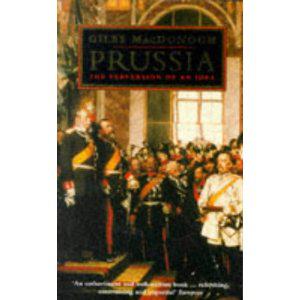
Prussia: The Perversion of an Idea
Forty-seven years ago the Allies Control Council produced the final obsequies of a state which 'from its earliest days had been a bearer of militarism and reaction in Germany'. With this laconic text, Prussia, with its near millennium of history as one of the frontier states of Christian Europe, was cast onto the dung-heap. To many contemporaries, the gesture had a futile ring about it: 'a victorious donkey kicking a long-dead lion'. This book examines Prussia over the years following the creation of the German Empire in 1871. It shows its severe virtues were weathered away by the new imperial idea. It analyses all aspects of the state, entirely distinct, worshiped by some and feared by others. Prussia has been seen as a scapegoat for Nazi Germany. This important book questions the truth behind these charges, examines the historical background, analyses the nature of 'Prussianism' and looks at the traces it has left us with today. -
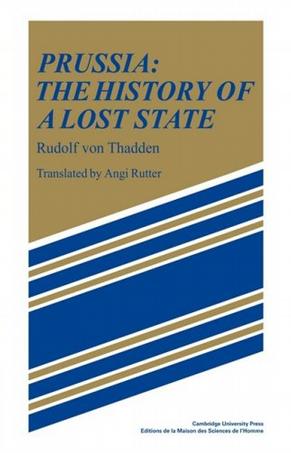
Prussia
This is a series of reflective essays which pose fundamental and deceptively simple questions about Prussia, which for over fifty years has ceased to exist as a political entity but which continues to exert a strong and unusual influence upon German history and contemporary affairs. Professor von Thadden succeeds in demolishing many of the legends which have surrounded Prussia but pays tribute to the unique role it has played in ushering Germany into the modern world. After dealing with comparatively straightforward questions about periodisation and geographical location, Professor von Thadden proceeds to examine Prussia's social structure, its political character, its relations with Germany, its church and finally, its relations with Europe. Based on a series of radio talks in 1979, the book was originally published as Fragen an Preussen in 1981. -
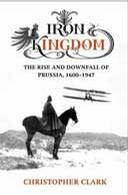
Iron Kingdom
-
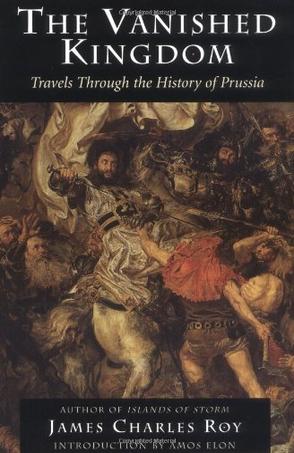
The Vanished Kingdom
Twice in this century, Germany initiated wars of unimagined terror and destruction. In both cases, defense of the Prussian” realm, the German homeland, was the perceived and vilified perpetrator. Few today understand with any precision what Prussia” means, either geographically or nationalistically, but neither would they deny the psychic resonance of the single word. To most, it means unbridled aggression, the image of the goose-stepping Junker .But what was once Prussia is now a significant portion of Eastern Europe, a contested homeland first won by Christian knights of the Teutonic Order. For centuries thereafter its terrain has been crisscrossed by war and partitioned by barbed wire. In its final catastrophe of 1945, nearly two million German refugees fled the region as Russian armies broke the eastern front, perhaps the greatest dislocation of a civilian population at any time during World War II. With the Berlin Wall now a memory and the Soviet Union in a state of collapse, this remains a geography in shambles. Modern travelers can now, for the first time in decades, see and ponder for themselves what Prussia really was and now is.James Charles Roy and Amos Elon, two writers noted for their inquisitive natures, have gone to search through the rubble themselves. They intermingle present-day observations with moving vignettes from the German and Prussian past, sketching a portrait of the Europe we know today. The story is spiced with interviews and reminiscences, unforgettable in their sadness, of people looking back at a life now gone, a life full of turmoil and heartache, memories both fond and tragic. The final result: a far deeper understanding of the tattered lands of today’s Eastern Europe. -
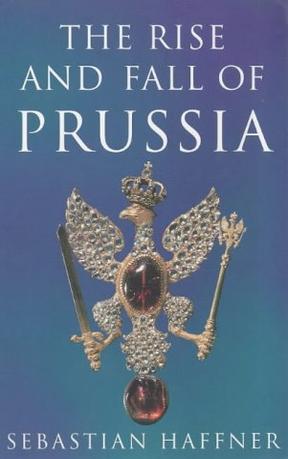
The Rise and Fall of Prussia (Phoenix Giants)
Prussia, a state which contributed so much to European civilization, only exis-ted as an independent power for 170 years. Sebastian Haffner, a Prussian by birth, reassesses the legend and tells the short but dramatic history of this unique state. He casts fresh light on its foundation, its struggle to become a great power in the eighteenth century, its important role as one of the Three Black Eagles with Austria and Russia, and its eventual disappearance from the map of Europe after the establishment of the German Empire. -
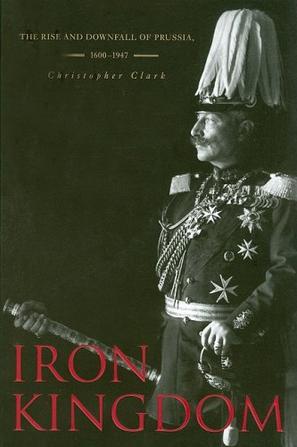
Iron Kingdom